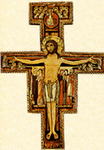Two Men Sharing the Same Birthday Who Changed the World


Just think of it. Two men whose life work and ideas in the 19th century changed the course of human history and human thinking.
Abraham Lincoln (1809-1865) and Charles Darwin (1809-1882) both shared the same day of birth which was commemorated last week, 12 February 1809.
Abraham Lincoln, 16th President of the United States of America
Charles Darwin, father of the theory of evoltion
One was born in rural Kentucky in the newly formed United States of America and the other in England of practicing Christian parents. In fact, Charles Darwin's father was a pastor and hoped that his son would follow in his footsteps.
Each followed a very different path than may have been originally anticipated or expected. Lincoln had difficulty in the mercantile profession of rural Illinois, where he would eventually have greater success as a self-taught lawyer. Darwin was a botanist and zoologist -- more curious than anything. He wanted to know what made living things "tick" -- how they worked and why they were the way they were.
Each ended up radically shifting the course of history. Abraham Lincoln eventually won the presidency of the USA at the time of the secession of the Confederate States in the south was being realized. His dream and purpose was to keep the union whole, even to the point of engaging in the War Between the States (so the South) or the Civil War (so the North).
Charles Darwin, traveling across the world on the H.M.S. Beagle, became convinced of the interconnectedness of all living things through what he would eventually call "evolution." This theory of the beginnings of life on our planet was written under the title, The Origin of Species. It really wasn't until the early 20th century that Darwin's theory began to take hold -- after Gregor Mendel's experiments with genetics, along with others who exprimented similarly, were published. Gregor Mendel, by the way, was a Catholic Augustinian friar from Austria.
For Lincoln, what began as a manifest struggle to hold the country whole resulted in his famous Emancipation Proclamation of 1863, following the Battle of Gettysburg, in which he declared that all African-Americans who were held as slaves should be considered as free individuals. While held high for its lofty aims, it was also a pragmatic piece of literature to incite slaves to revolt and help destabilize the South. Apparently President Lincoln invited Frederick Douglass, the freed slave cum abolitionist to the White House to discuss this and to promote it.
But his incisive proclamation paved the way for the end of institutionalized slavery in this country. It wouldn't do away with the "Jim Crow" laws which followed Reconstruction in the South and subsequent institutionalized segregation. That would not be resolved, at least officially, until the Civil Rights Movement in the middle of the following century.

Charles Darwin's comments and inductive reasoning landed him to be hailed as an enlightenment among many in the scientific community and vilified by many in the religious (especially Protestant Christian) community. His insights and seemingly irrefutable evidence pointed to something quite different than a literal interpretation of Sacred Scriptures of both the Jewish and the Christian communities of faith.
Holding the Judeo-Christian understanding of creation and the theory of evolution in tension has been the struggle for many believers. Some outright deny the possibility of evolution. Others deny the possibility of creation and even a Creator. Some other subscribe to the notion of "intelligent design." Others have no problem whatsoever holding the two together -- creation by God through the means of evolution. And even those who subscribe to evolution note that their understanding of what is evolving and how these processes occur disagree.
What these two men leave us with, though, is a remarkable sense of hope. They never knew one another, although I would suspect that they heard of one another and what the other thought and did. But the hope that they offered -- in Lincoln's famous Gettysburg Address and the aforementioned proclamation, and Darwin's great studies of living things and fossils in nature -- show us the beauty of human life, the great variety of all living things on our planet, the great purpose of the struggle for freedom and the dignity of reconciling one's enemies, as Lincoln did at the end of the bloodiest conflict in our nation.


No comments:
Post a Comment